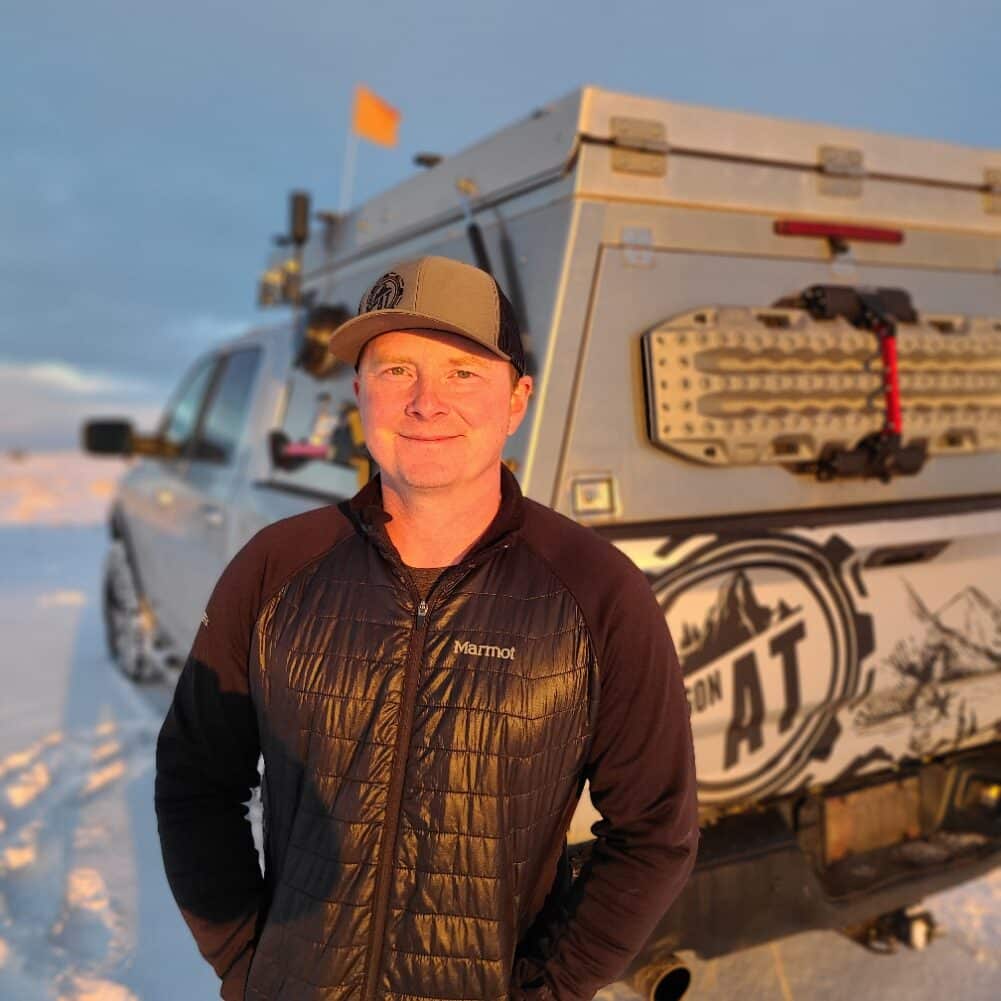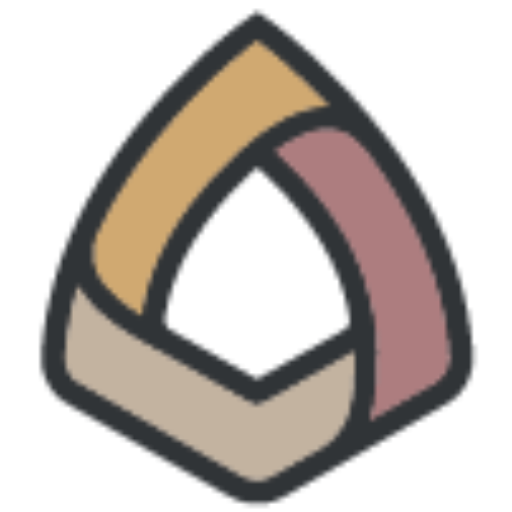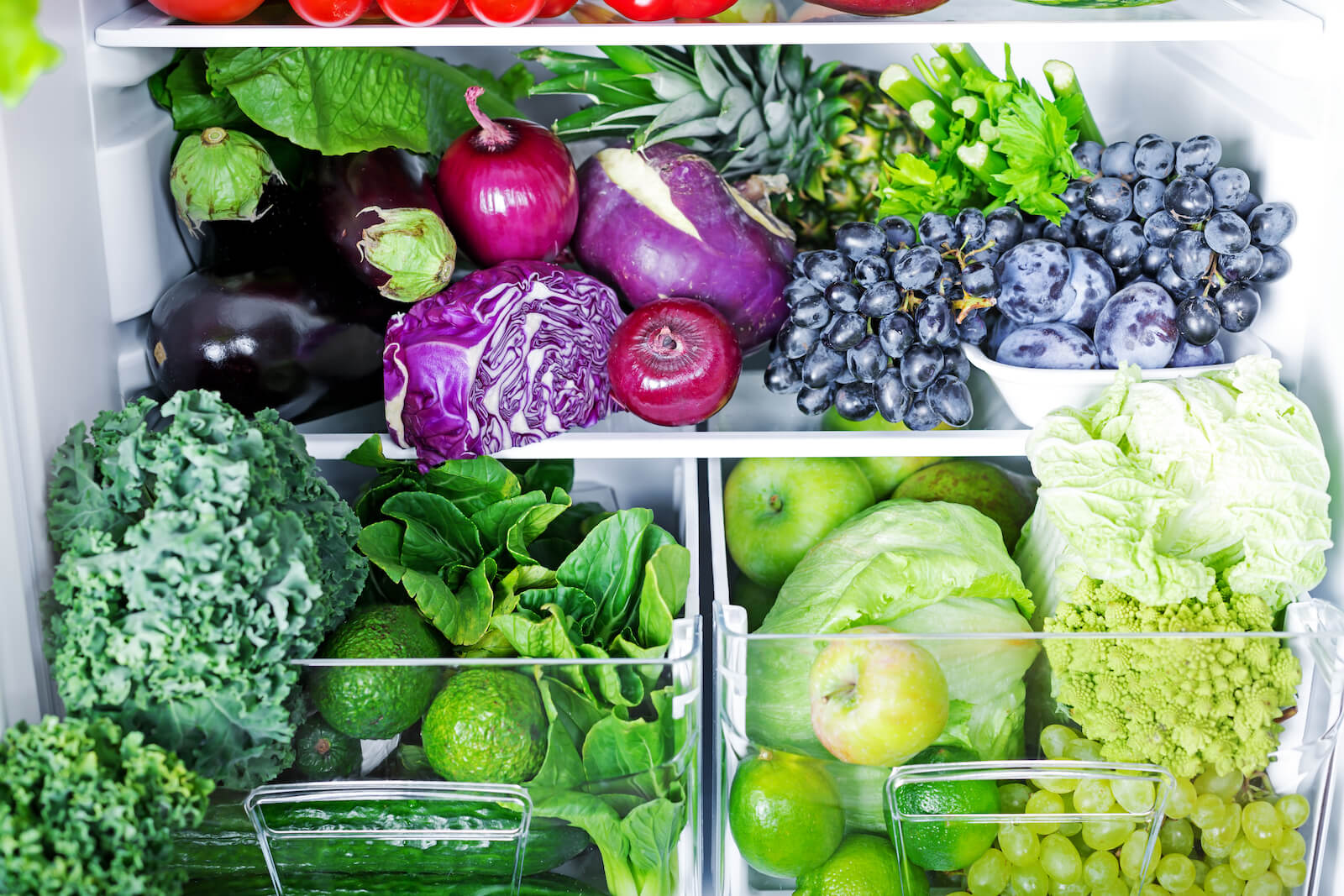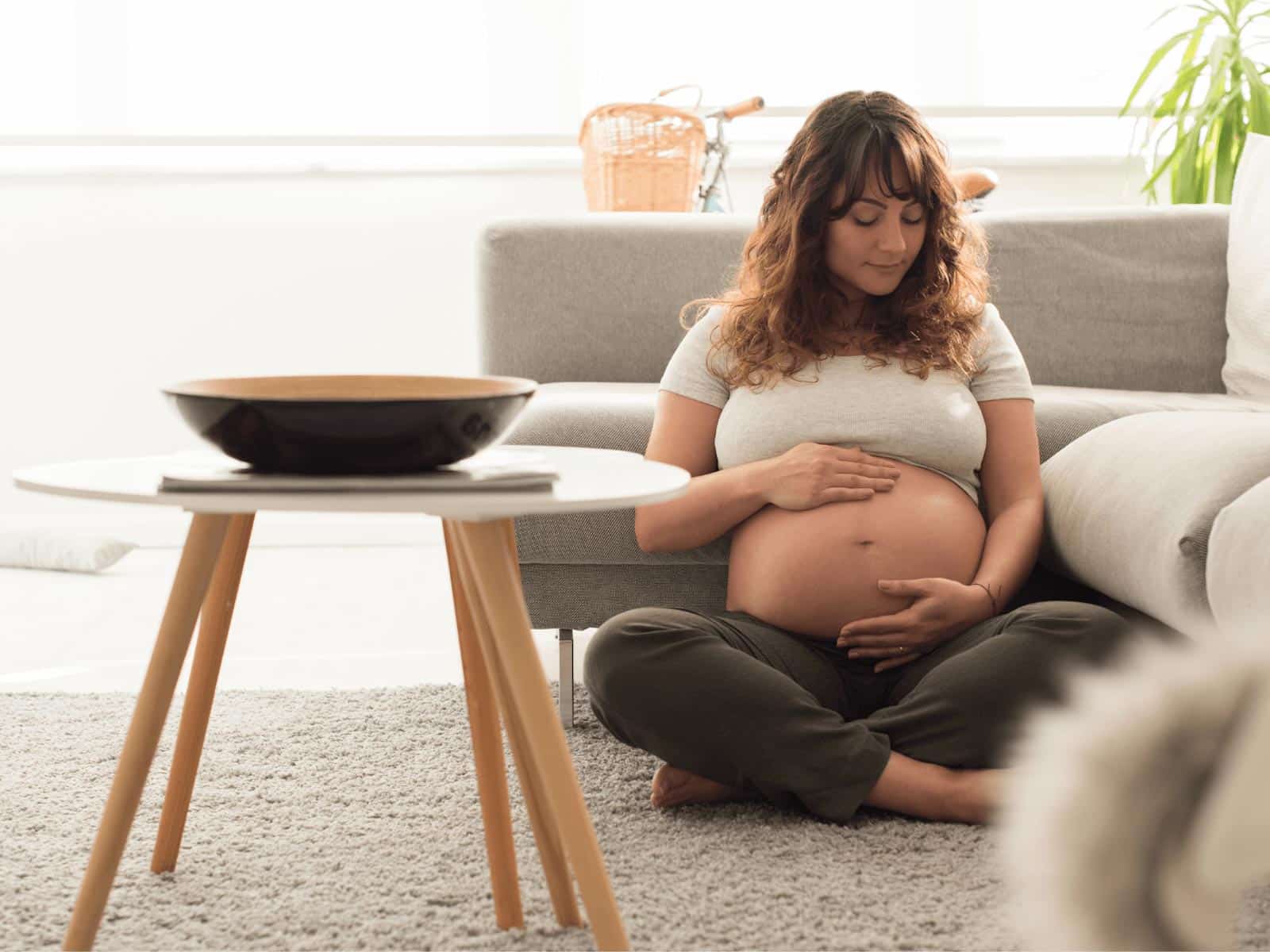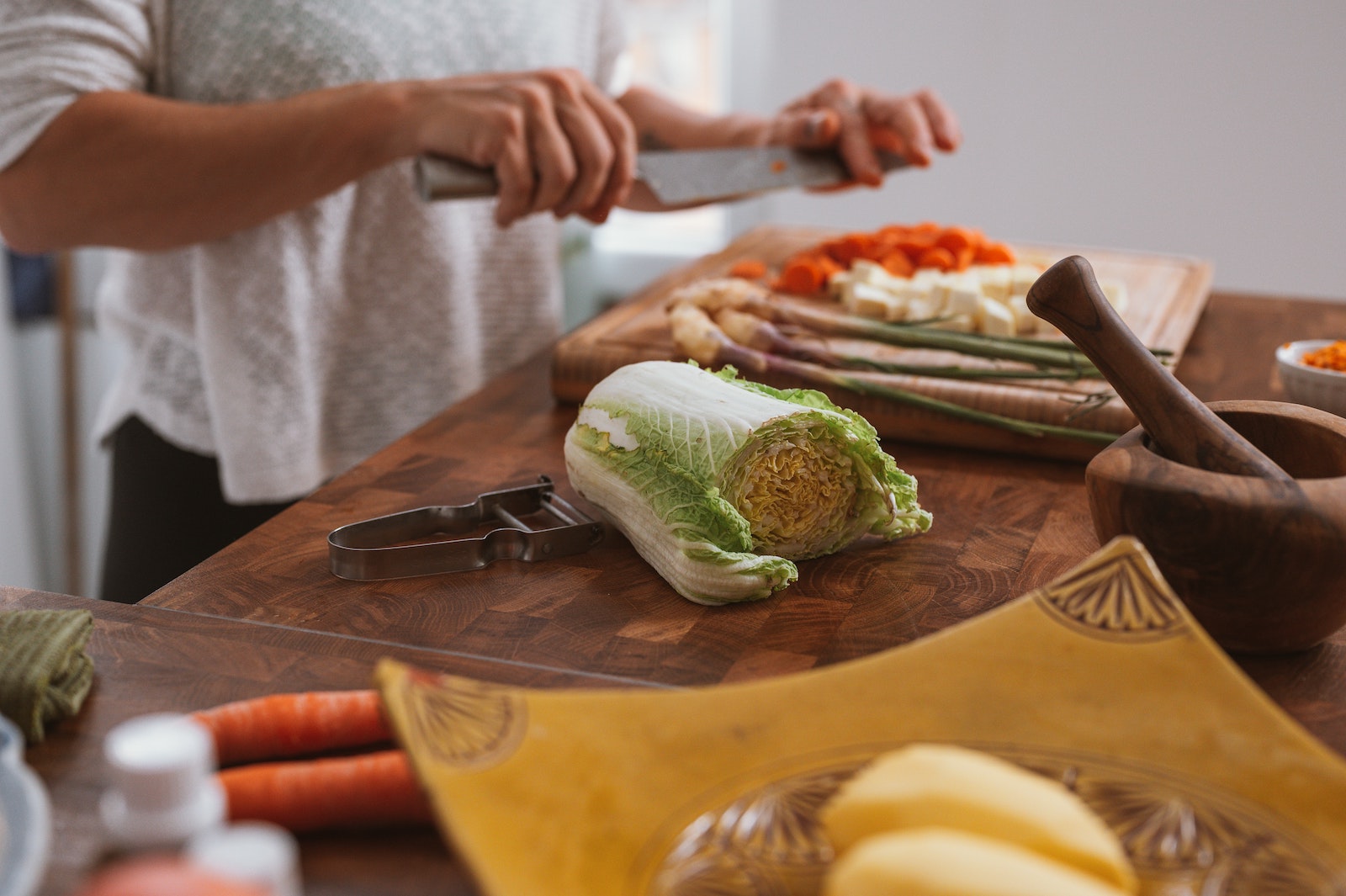Brent Baker is the co-founder of Public Land Stewards (PLS), a non-profit organization based here in Central Oregon dedicated to keeping our public lands clean and accessible for all to recreate safely and freely. They do this through hosting large scale volunteer cleanup events, providing education and resources, and connecting our community.
PLS events are a huge win in our books because they cover FOUR of our 8 Pillars of Inspired Health: Sunshine & Nature, Movement & Exercise, Community, and Non-Toxic Home. Read on to learn more about Brent and this worthy organization!
Q: Hi Brent! Thanks for chatting with us today! Can you tell us a bit about yourself and what motivated you to start Public Land Stewards?
BB: I’m an Ohio native, and moved to Bend in 2013. I run an off-grid travel shop called Oregon Adventure Trucks on the Northeast side of town. As a lover of the outdoors, I fell in love with public lands and the accessibility it gives us to recreate or just get away. Unfortunately, these lands are under threat from closures due to mis-use and the lack of education from new users. Once our accessibility is gone we won’t get it back, so it was important to start doing something now rather than just complain about the issue. Two others and I decided to form the Public Land Stewards non-profit to help keep our public lands accessible for all user groups.
Q: What is the mission of PLS?
BB: To protect and preserve our public lands for everyone. We want all user groups to have accessibility to these lands so they can recreate freely.
Q: Let’s clarify some basics in regard to public land in Central Oregon. What constitutes “public land?” Who manages it and what can it be used for?
BB: Public land is land owned by the citizens of the United States of America. This land is broken into divisions and managed by either the Bureau of Land Management (BLM) or the National Forest Service. While these land managers are responsible for aspects of the public land, their purpose was never to police and prevent the misuse that we see happening today. It is the responsibility of the United States Citizens to maintain these lands, as we are the ones responsible for using and abusing them.
Q: What are you most proud of or inspired by in terms of what PLS has accomplished over the years?
BB: While the sheer volume of trash removed is a huge accomplishment (over 500,000 pounds in two years), I’m more proud of how our Central Oregon community has rallied behind our purpose. Seeing volunteers work together from all different types of recreational groups who are not supposed to like each other is a powerful testament to putting differences aside for a common cause where we all benefit.
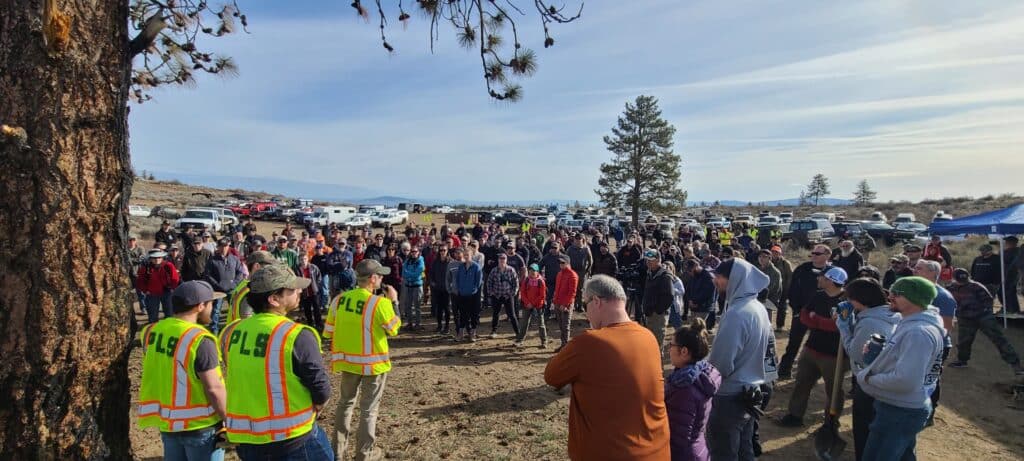
Q: Based on your experience with PLS events, what are the top items (or maybe surprising items?) your volunteers are pulling from these cleanups?
BB: To be honest, we don’t scour through most of what we pick up. Trash goes from the ground, into a bag or just right into a dump trailer. What is most surprising is to see that the trash comes from all types of misuse. Most people complain and blame the homeless communities on trashing our lands, but once you come to a cleanup you’ll quickly understand that it is not just that group abusing our lands. Sure, the homeless camps are concentrated, but what we find more of is trash piles that have been illegally dumped from contractors or individuals avoiding landfill fees, trash left behind from target shooting, disregarded trash from weekend campers, and misuse of the land from travelers not being educated on where you can go.
Q: Organized cleanups have become a popular activity all over the world. Some would argue that these cleanups don’t actually do anything to help the systemic issue of pollution and trash in our environment. How would you respond to that?
BB: We get a lot of flack on social media that we are only enabling people who misuse our lands, and I guess that is one way you can look at it. Our perspective is that if we want to keep our public lands accessible we have to DO something, not just complain about issues.
We are not social workers, we do not have the resources to track and report every loaded truck or trailer that drives into public land, we do not have the reach to slap the wrist of every person who doesn’t think twice about littering or driving off trail. What we can do is pick up trash, and share best practices about how to be good stewards of public land.
As senseless as some people think our efforts might be, can you imagine what the areas around Bend would look like if those half million pounds of trash were still there? Plus, everyone in our community can pick something up off the ground and throw it away. We are successful because of our volunteers, and they range from 90-year-old residents to toddlers. It is something everyone can do, and when you get a lot of people doing something that they are capable of… a lot can get done.
“We are successful because of our volunteers, and they range from 90-year-old residents to toddlers. It is something everyone can do, and when you get a lot of people doing something that they are capable of… a lot can get done.“
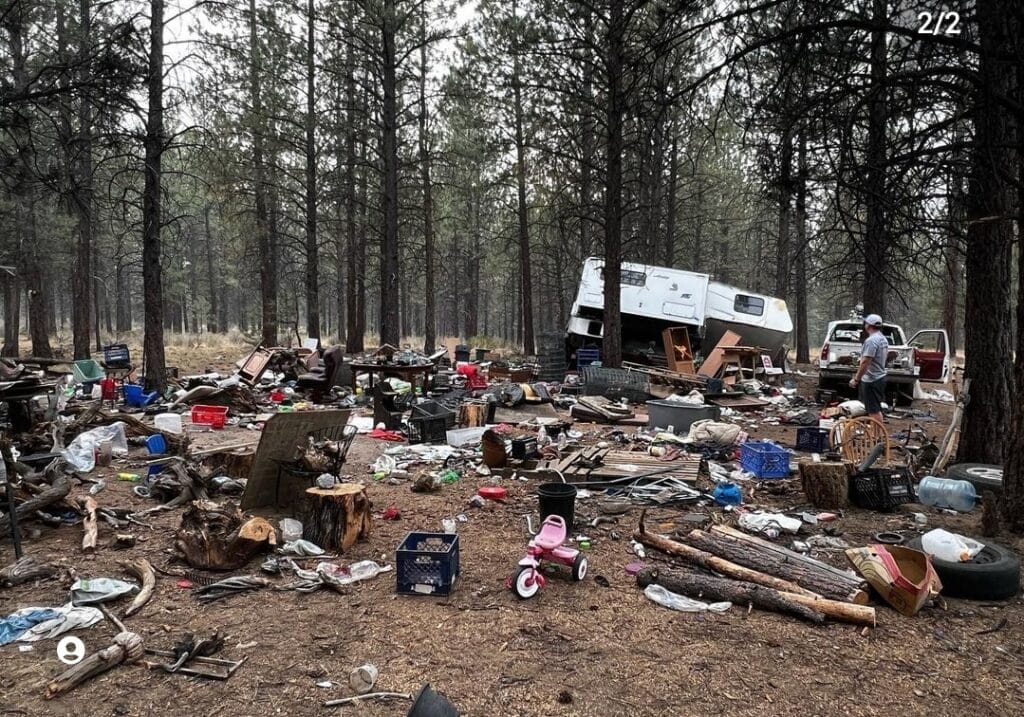
Q: Tell us about the “This Land is Our Land” film premiere!
BB: We are very proud to release a documentary made about our cause. The film “This Land is Our Land” was put together by The Graceful Renegade, and she did a fantastic job capturing the reason why public land is so important and why organizations like ours are critical to their longevity. The film premiered first to our local community on May 16th at Bevel Brewing, and we are also speaking with film festivals around North America, and hope to have it reach a wider audience. (You can watch the extended film trailer here).
Q: What are you most excited about as you look to the future of PLS?
BB: I’m most excited about not having to do this anymore. I’m excited about a world where citizens are educated about responsible public land stewardship when they begin a recreation, and they feel better connected to those communities when they recreate responsibly. I’m excited about solutions for the human issues we have, and having accessible resources for those individuals to seek help. I’m excited to see our public lands thrive, and possibly open up more. I’m excited to know that future generations will have a place to get away from the stresses of life, immerse themselves in nature, and reconnect to what is important in life and what the true meaning of living is.
Q: What is a book you’ve read recently that you can’t stop thinking about?
BB: I recently just completed the most controversial book in history, then Bible. I didn’t read it for divine intervention, but I read it from cover to cover from a historical perspective. It was incredibly enlightening to follow the stories documented from one of the oldest cultures in history, how they lived, how they viewed the world, and their relationship with God. I’ve always been intrigued by ancient history, and regardless what you believe, the Bible is historical documentation about the beginning of humanity.
Q: And as usual, let’s share some Central Oregon love! Can you share a couple of your favorite local businesses?
BB: I love food, so I’m going to share a few restaurants we’ve recently tried out. My favorite Latin restaurant is Carnival in Redmond, with their amazing ceviche, mezcal cocktails, and Peruvian dishes. Need a quick breakfast, check out the egg pockets from Nancy P’s Café and Bakery… you’ll thank me later. For date night my wife and I recently enjoyed one of the best meals I’ve had in Bend at Dear Irene. It’s small, so you’ll need a reservation, but we did not find one bad thing on the menu.
Thank you Brent!
Learn more about Public Land Stewards and how you can get involved at their website, and give them a follow on Instagram!
And a note from Brent if you’re interested in hosting your own cleanup:
BB: While we host our own cleanups, we also support others to do their own. If you have a company, group, or recreational club wanting to do a small-scale cleanup, reach out to us on our website for support. We cover the dump fees, can bring equipment, protection gear, and even reach out to our community for volunteers.
